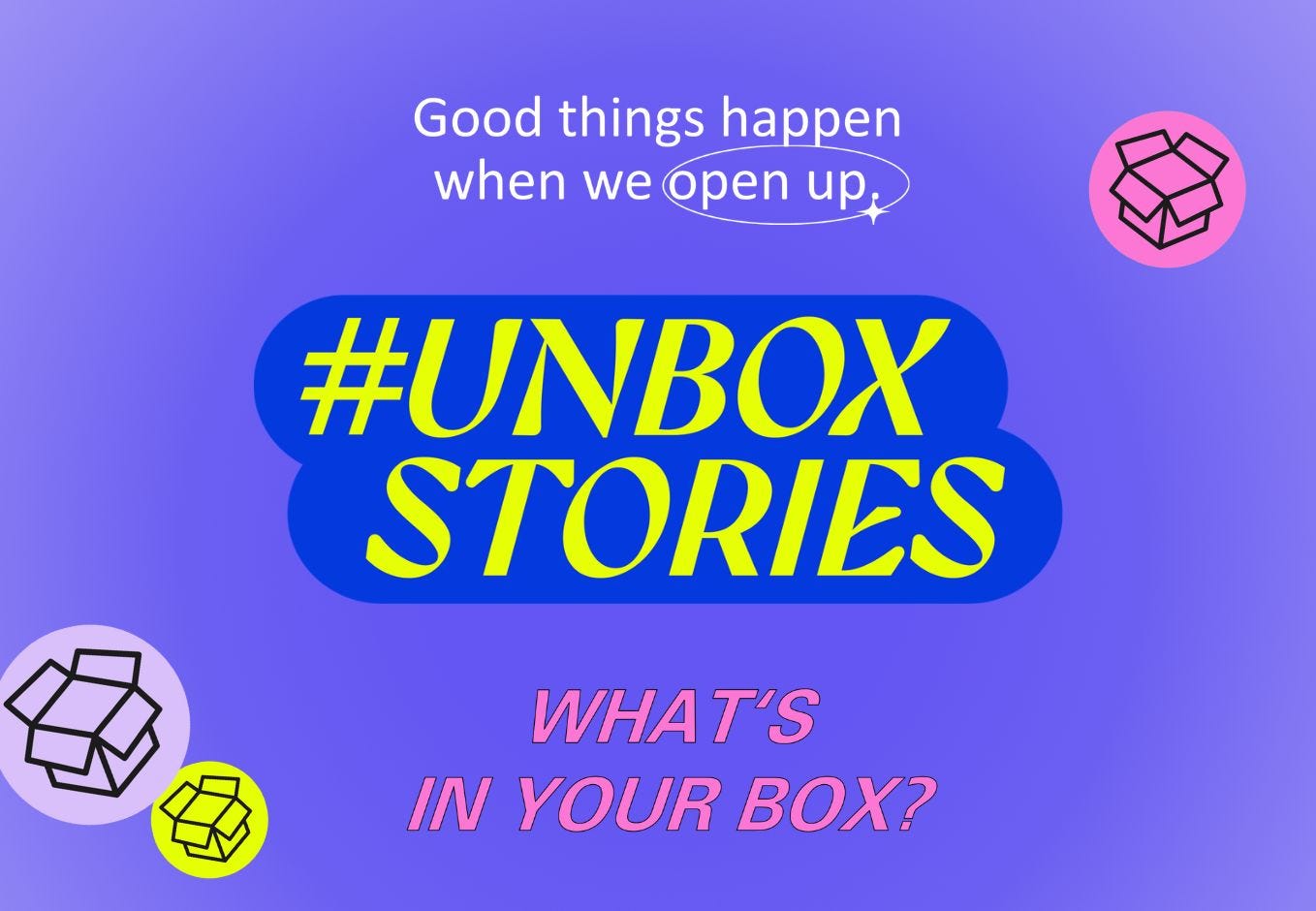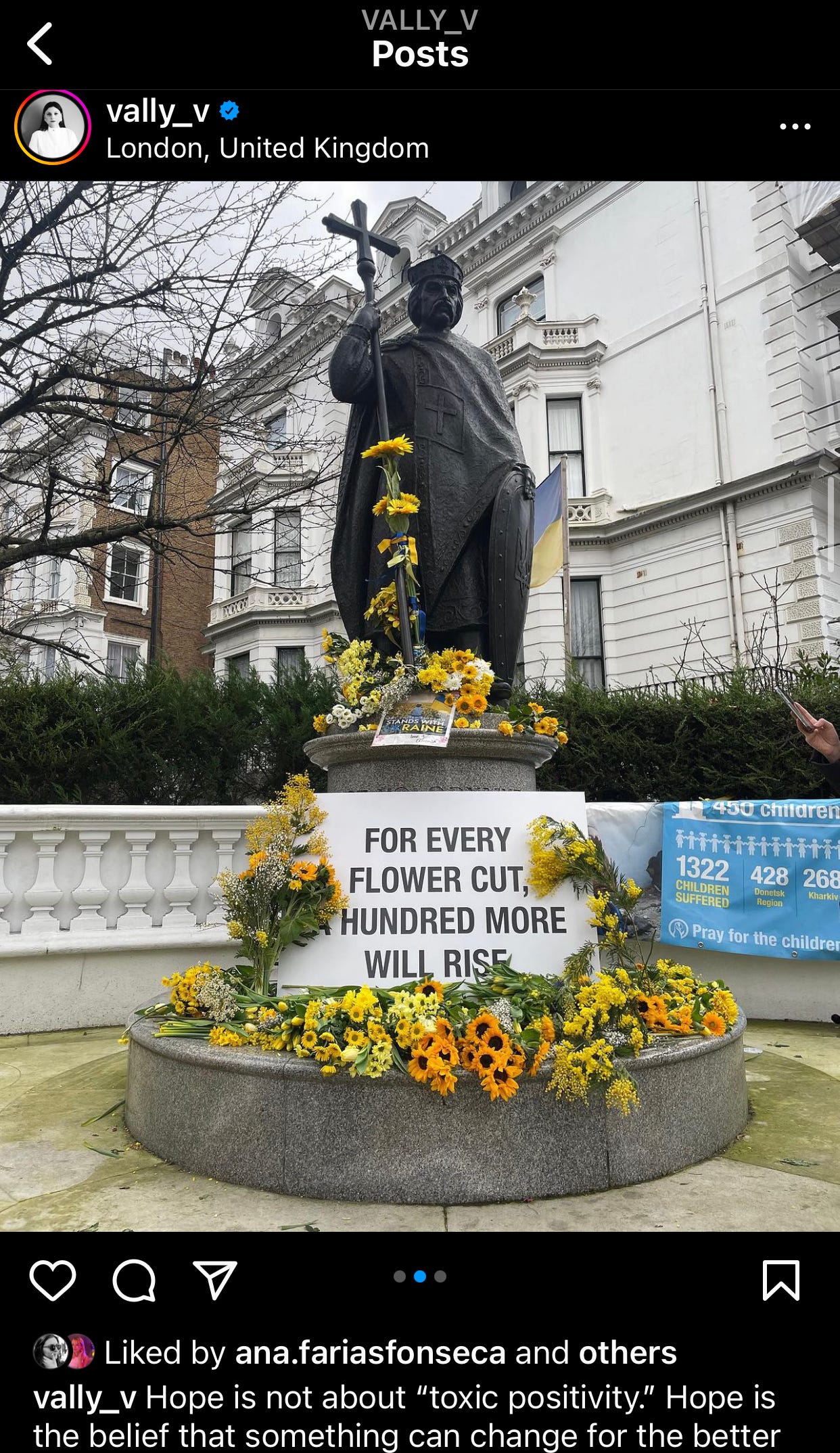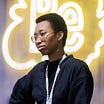To mark the launch of #UnboxStories, a ground-breaking hope-based campaign for post-migration societies from the Young Islam Conference (JIK) and its Narrative Change Academy, we are sharing an excerpt from an article by hope-based expert Aminata Bouaré, one of the participants from France, about the power of dreams to counter harmful narratives.
Then Gesine Schmidt-Schmiedbauer writes about the strategy behind the #UnboxStories campaign. Gesine is another member of the hope-based community, who co-facilitated the academy along with Philip Doyle, with whom she runs the stratcoms agency one step beyond.
Dreaming as a path towards progress and liberation
by Aminata Bouaré
Would you sell your soul for the world of your dreams? Could you even imagine what this world or this life could look like? Or do you already see your shortcomings, apprehend the fallout?
What if you did dare to fantasize? What if reverie, humility and pragmatism were not contradictory?
Does it still feel overwhelming, confusing, perhaps dangerous? After all, the Devil is known for their mastery of trickery. What if someone showed you the way? Would you take this leap of faith to think and craft your very own happy ending?
Yes, thinking about the future is scary. Dreaming? Even scarier. Yet, as social fractures grow, we cannot stay idle. We are in this together, and we need a better tomorrow. So, how to move forward?
Dreamers: naïve or radical?
I like to call myself a dreamer. Why? Well, our reality used to seem very dull to me. No superpowers, no time travel, no aliens. Jokes aside, I’ve always felt that I had to accept this world, even though reluctantly.
In my youth, I could hear commonplaces like “this is how things work” or “this is the only way”.
In our rigid system of beliefs, utopias are underrated.
They’re often portrayed as dystopias in disguise, only leaving us distraught and disheartened, with an urge to stop yearning for more. Hence, better stick to the current system since this is the best we’ve got.
Consequently, dreamers are often depicted in a poor light. At best, they could be thought naïve and disconnected from reality. A tad passionate? Portray them as cult leaders or tyrants in the making to definitely discredit them.
What if we let go of fear-based prejudices and gave it an actual shot, and try to imagine how things could be like?
During our narrative change workshops throughout 2023, we sought to identify our values and priorities, thinking about the narratives we wished to leave behind, detaching ourselves from those towards a Dream of Togetherness, Inclusion, Fairness, and Freedom for our society.
Beyond good immigrant narratives
During that same time there were several stark reminders why articulating the changes and the world we long for matters now more than ever.
Nahel Merzouk, 17, was fatally shot by the police in June. Public debate quickly shifted blame from the police to the young demonstrators expressing their outrage at yet another act of police violence. French superstar Killian Mbappé was criticized when he expressed sympathy for the boy. A similar thing happened to actor Omar Sy when he questioned the lack of attention paid to conflicts in Africa.
These events reflected a challenge we identified in our workshops.
As minorities or newcomers, we could play the role of the “good immigrant”, believe in meritocracy, be successful. Unfortunately, this is and will probably never be enough. The stories of Omar, Killian, Nahel and many others demonstrate this sad reality.
Discussing whether or not racism exists in our societies is actually not the main point, we need to go beyond that, and express what we need to set a new paradigm of social and cultural coexistence.
Therefore, let’s be radically honest, take the space we’re due, ask the annoying questions, make our voices heard, as there is nothing left to lose. Let’s ask ourselves once again: in which world do we aspire to live in?
The world that I dream of
For myself, I dream of a world in which I can be whole, in which I can be free. Free to speak however I want, free to take space, free to dream, to feel, to be complex, multilayered, to be humanized.
For my family, I dream of my cousins wearing their headscarves at school and university, being their authentic selves. I dream of my aunt wearing traditional West-African attire for a job interview and being warmly welcomed. Of a world where Black and Arab children play in the streets and feel safe everywhere.
I dream of my youngest cousin being able to become an artist, if she wishes for it. I dream of her mum encouraging her, not influenced by social and racial determinism.
I dream of her older brother, a sweet 14-year-old boy, crossing the path of the police in the streets, and being smiled at.
For everyone, I dream of a world where we pay attention to each other. A world where we talk, learn and move forward hand in hand. A world where empathy, listening and rhetoric are as important as math and physics.
For us, I dream of community. Of compassion. Of mutual care and aid. Of love. Of freedom. Of equity. I dream of many things, and I hope we can have them all.
Let’s Dream Forward
I’ve realized that the more I dream, the more faith I have in myself. Because, sometimes, when I share my thoughts and wishes, I find fellow visionaries who also dream, and our ideals amplify, resonate, become one.
The more we dream, the more faith we have in us. And when we really believe in the same dream, we can get closer to it.
Dreaming is resisting. Dreaming gives agency. Dreaming gives power. Dreaming sets free. So let’s dream forward.
In case you wonder, I haven’t always been very positive. But, being human means being able to experience, learn, think, live, fail, rethink, evolve. There is a commonplace that says: “where there is life, there is hope”. I want to believe in this one, because: with hope comes change.
Please read the full version of Aminata’s dream in the full version of the article. Aminata and her fellow Narrative Changemakers in the Academy designed the #UnboxStories campaign to bring these dreams to life. Here is Gesine on the campaign strategy.👇
Presenting the #UnboxStories campaign
It’s common sense to care. Open up, act and thrive together.
The young narrative leaders from the UK, France, and Germany prepared this call to action during the final workshop Narrative Change Academy that I ran with my hope-based colleagues Philip and Thomas.
During the Academy, they developed a strategy to reinforce a hope-based narrative around migration and diversity built on tolerance, curiosity, belonging, and above all, shared humanity.
They used this strategy to work with an agency to create their digital campaign called #UnboxStories. This campaign is built around stories of diversity being not just normal, but something making our lives and our societies more enriching. It targets young “detached” audiences, promoting mutual care and support as common sense and the way to thrive together.
The campaign aims create three main narrative shifts:
Away from the narrative of the "good immigrant" that emphasizes individual achievements and the economic benefits of migration, towards a narrative of shared humanity that focuses on commonalities and encounters between equals.
Towards a narrative of collective action based on mutual care and away from neo-liberal ideas that place individual economic success at the center.
Towards the empowering narrative that change happens all the time through mutual care and solidarity, and away from the belief that only powerful elites can bring about change.
A new narrative becomes salient through repetition and reach and resonance
This means first defining and articulating the new narrative and then focusing all efforts on highlighting stories based on the narrative, over and over again.
For the leaders of the Narrative Change Academy, a group of young Muslims and their allies who have had to live with the effects of racist and Islamophobic narratives all their lives, this has been challenging at times. Not fighting and calling out the harmful narratives that are projected onto them can feel like they were neglecting an essential part of their goal, and this requires time and space to reflect.
But to enable change, it is crucial to strategically grow and highlight the narrative they want. Ultimately, it is the ideas and visions of these young people that are needed in, but are currently missing from, the public discourse.
To achieve both narrative and social change, more people access to the skills to become Narrative Leaders by communicating the world they want to build, and, in this case, reshaping and enriching narratives about Muslim identities in Europe.
Read more about JIK’s Narrative Change Academy here. You can contribute to narrative change right now simply by engaging with the posts on Instagram here.
Hopey, changey stuff
Social change movements need to be more like jazz bands, writes Monica Roa.
We are talking about progress and the future less, a cultural shift that could have real consequences, but thriving democracies depend on the possibility of a better future .
More FT stuff: how social media can be more hope-based than the news, for example, coverage of “war on TikTok can offer an illuminating portrait of the very best in human kindness”.
Powerful and beautiful hope-based action by Ukrainians in London.
What’s giving us hope
Ruth Taylor blogs for the Common Cause Foundation about the need to cultivate intrinsic values in culture and politics:
“Politicians on the left and right, and even civil society organisations, continue to appeal to people through their extrinsic values, which means they are adding fuel to the very fire they want to extinguish.”
But there is hope:
“If our cultures were different; if they prioritised to a greater extent values of care, solidarity, community and connection to the more-than-human world, we could expect greater, bolder public demand for progressive change.”
Quote of the week
The writer Mohsin Hamid why playfulness around serious themes is OK:
“If you look at human culture from ancient Sumerian texts onwards, people have tried to use stories to amuse themselves and also to reckon with the fears they’re facing. The current moment is no different. We’re grappling with horrific environmental issues, the rise of militarism, enormous inequalities in what seem to be decreasingly tolerant societies. I don’t want to pretend that doesn’t exist. But we are also looking for transcendence, which we might get through love, or playfulness.”










